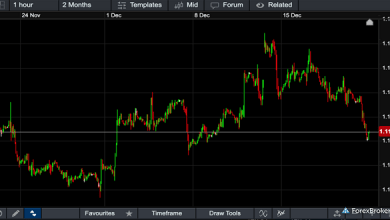Understanding the Performance Impact – Hardware Vs Software Firewalls

Unlike software firewalls, hardware firewalls operate as physical devices. They protect the network by monitoring incoming and outgoing data packets, passing safe packets while blocking dangerous ones.
As a standalone hardware device, hardware firewalls don’t require system resources to operate, so they have zero impact on the speed and performance of a computer.
Performance Impact
A hardware firewall is a physical device that filters network traffic between devices and the Internet. The device can be a built-in router or a standalone gadget. The device has onboard memory running security policies and executing business rules. Its primary function is to lower potential cyber risks by filtering incoming and outgoing network traffic for cyber threats.
Compared to software firewalls, the former can analyze web traffic in real-time and block malicious activities using advanced security analytics. The hardware can also increase bandwidth by enabling faster processing of data packets. It can also decrease network latency, making online services more efficient and reliable.
However, a hardware firewall is more expensive to install and requires a professional to handle it. It also takes up physical space and may not be the best option for entities with limited spaces or low budgets. It also consumes a significant portion of the computer’s RAM and processing power.
A software firewall, on the other hand, is easier to manage and more versatile. It can be installed on numerous computers, cellphones, and tablets to safeguard several devices. Its primary purpose is to reduce potential cybersecurity risks by watching for malware, phishing scams, and other incoming and outgoing network data hazards. As a result, it is up to you to decide whether to use a hardware vs software firewall for your computer security. The program can also filter information based on keywords.
Security Impact
A hardware firewall is a physical device between your router and the world wide web. It monitors network traffic, both in and out, for malicious activity or suspicious data packets.
Hardware firewalls offer a complete solution to cyber threats. They work with other security solutions like antivirus software, staying current on hardware and software updates, and training your staff on internet hygiene. They also collect security information about prevalent risks and automate protections. For small businesses with multiple computers and systems, a hardware firewall can help simplify IT management and protect against more sophisticated threats.
Firewalls are a great way to keep your home connected to the Internet without giving hackers access to your devices and sensitive information. However, they’re not a magic bullet; they are no substitute for staying current on patch updates, training your staff, or using antivirus software.
Unlike a hardware firewall, software firewalls can be installed and run on any computer system. They can also be customized to filter information that is being transmitted out of the system. The downside is that many software firewalls require significant memory and processing power, affecting overall computer performance. In addition, each system that has a software firewall must be individually updated, configured, and managed.
Management Impact
Software firewalls are installed on individual devices like computers and mobile phones, allowing them to control what those devices can do. It is a significant advantage, especially if you want to prevent snooping from Smart TVs and other nefarious devices constantly communicating with the Internet.
However, this granular control comes with the downside that software firewalls can significantly impact system performance and slow down devices, especially if they constantly analyze and process large volumes of data. Additionally, if numerous computers or systems need protection by a single software firewall, the cost of that solution can get expensive quickly.
On the other hand, hardware firewalls are positioned between network gateways, requiring all traffic to funnel through it for a closer inspection. Often, these firewalls can also hide private networks from public routable IP addresses, which saves costs and improves security.
Another benefit of hardware firewalls is that updates and protection upgrades can happen simultaneously across the entire network – unlike software firewalls, which must be updated on each device. It helps eliminate the risk of one device being left vulnerable to compromise or malware because it missed an update. It is a critical feature to consider when considering a firewall solution’s initial and ongoing costs.
Cost Impact
Regarding cost, hardware firewalls are more expensive than software options. It is because they are a dedicated network device that requires a significant investment to purchase, install and manage. Additionally, they take up some physical space in the home and may be better for entities with restricted spaces or limited budgets.
One of the great benefits of a hardware firewall is that it can protect your entire network with a single device. They’re installed between your cable modem and router, creating a physical barrier preventing tampering from within, unlike the software version, which is typically only available on individual computers or intelligent devices such as gaming consoles and Smart TVs.
On the other hand, software firewalls can be quite resource-intensive and impact system performance. It can be especially problematic on fast computers and mobile devices that need more processing power to spare.
However, with the advent of business-oriented firewall solutions offering advanced security features and a smaller footprint, minimizing this downside is possible. Thankfully, these premium solutions can still be quite affordable for small businesses and provide a more consistent level of whole-network protection with less impact on your computer’s performance.




